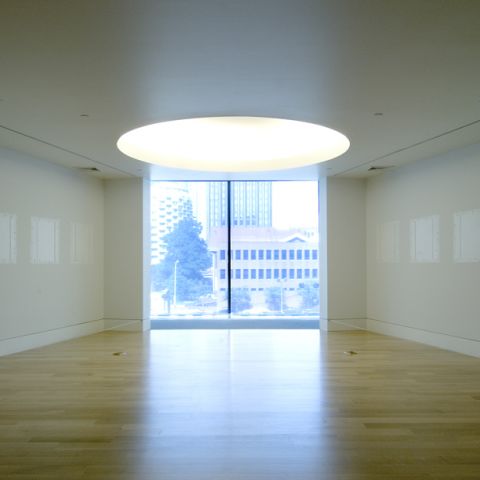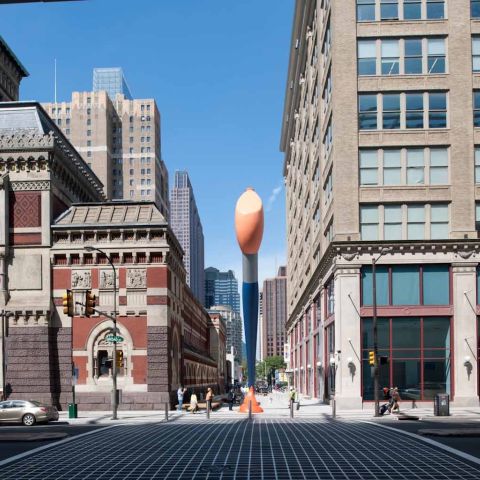George Tooker: A Retrospective
George Tooker: A Retrospective is the first museum retrospective in three decades of the work of George Tooker (b. 1920), providing a comprehensive examination of his place in American art and revealing the full scope of his achievement as a painter. Jointly organized by the National Academy Museum, Pennsylvania Academy of the Fine Arts, and Columbus Museum of Art, the exhibition brings together sixty-six paintings and drawings made since 1945.
George Tooker’s work became widely known in America during the late 1940s and early fifties. During the post World War II era in America, the development of Abstract Expressionism soon pushed representational art into the background of the contemporary art scene. A more popular avant-garde’s sensibility pursued and cherished the new, often at the expense of art produced within more established traditions. George Tooker: A Retrospective builds upon recent scholarship in order to re-examine the abstract/representational dichotomy by exploring the multiple meanings of postwar realist painting.
In 1944, Tooker met artist Paul Cadmus (1904–1999) at the Art Student’s League. Through Cadmus, Tooker became acquainted with the American Magic Realist Painters, Jared French (1905–1988) and his wife, Margaret Hoening (1889–1973), as well as with the dynamic gay community, which included arts philanthropist Lincoln Kirstein (1907–1996), photographer George Platt Lynes (1907–1955), and other prominent figures in the city’s artistic world. Tooker and his colleagues integrated lessons learned from Cubism, Surrealism, Abstract Expressionism, and Minimalism as readily as they did those of Piero della Francesca (circa 1420–1492). This circle was clearly interested in a broad stylistic and intellectual position that drew upon abstraction and new approaches to form while constructing narrative and figurative paintings. This retrospective presents an opportunity to re-examine Tooker’s oeuvre from a fresh and contemporary perspective.
From the beginning of his career, George Tooker has examined human experiences of love, death, aging, isolation, alienation, and grief as seen in many seminal works of the 1950s and 1960s. His instantly recognizable, enigmatic imagery ranges from complex works of protest of the human condition and often engage with some of the most important societal issues of our time. Much of his subsequent work has evinced humanistic notions of optimism and hope. Since the 1970s and Tooker’s conversion to Catholicism, his paintings have been imbued with a greater sense of spirituality and include more overtly religious and meditative subjects.
This exhibition will feature every period of Tooker’s long career including his ambitious multi-figure scenes of the 1950s such as Subway (1950; Whitney Museum of American Art), which have often been considered visual analogies to existentialist writings of the period. Additionally, the exhibition will contain a substantial selection of Tooker’s working drawings, rarely exhibited and largely concentrated in the collection of the Addison Gallery of American Art, allowing viewers a fascinating glimpse into the artist’s working methods.
We're so excited you're planning to visit PAFA!
Make time for art — visit us Thursday to Sunday.
Before reserving your tickets, please review helpful information about museum hours, accessibility, building access, and special admission programs.
If you have any questions, feel free to reach out to us at visitorservices@pafa.org — we’d love to help!


